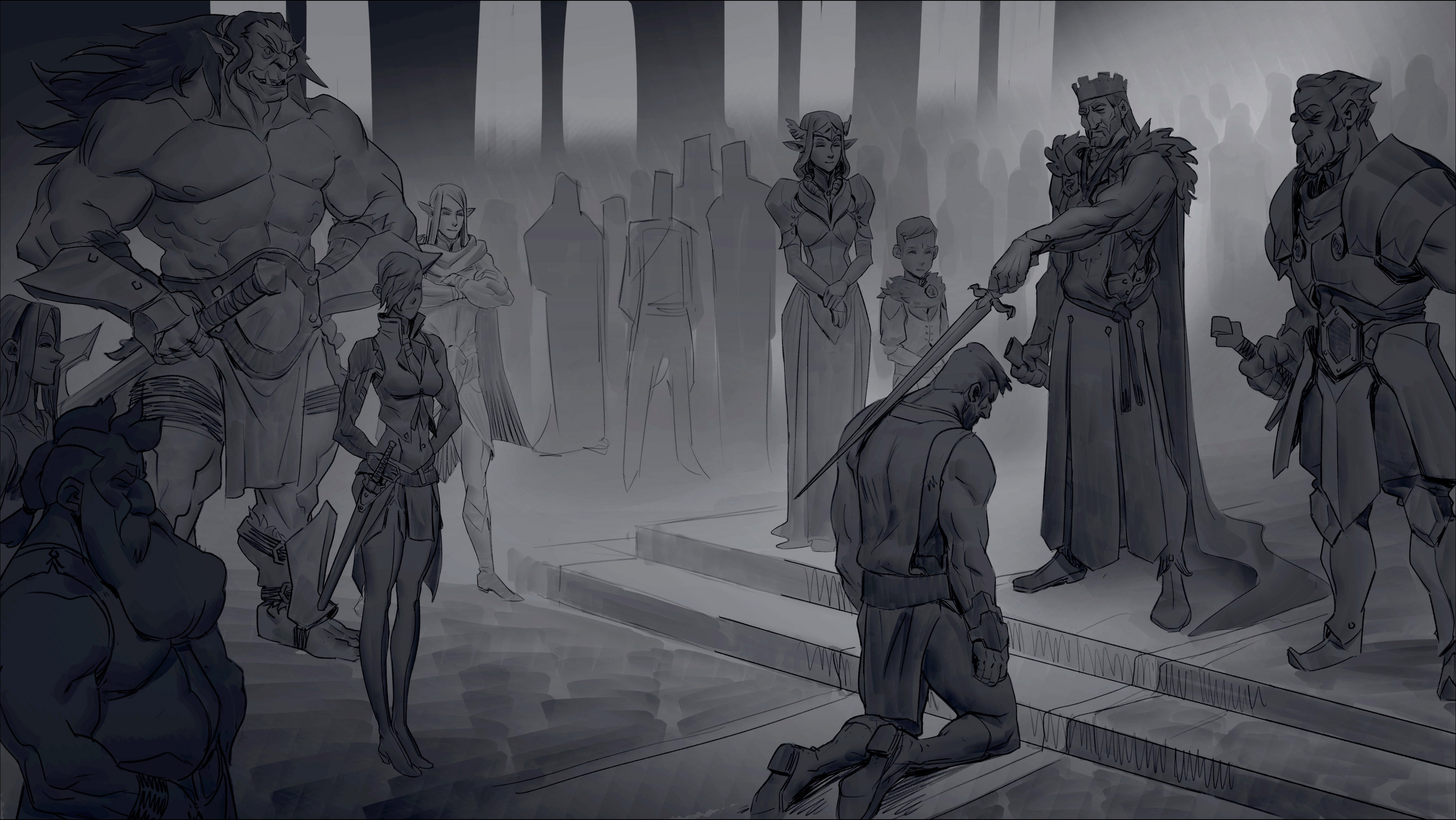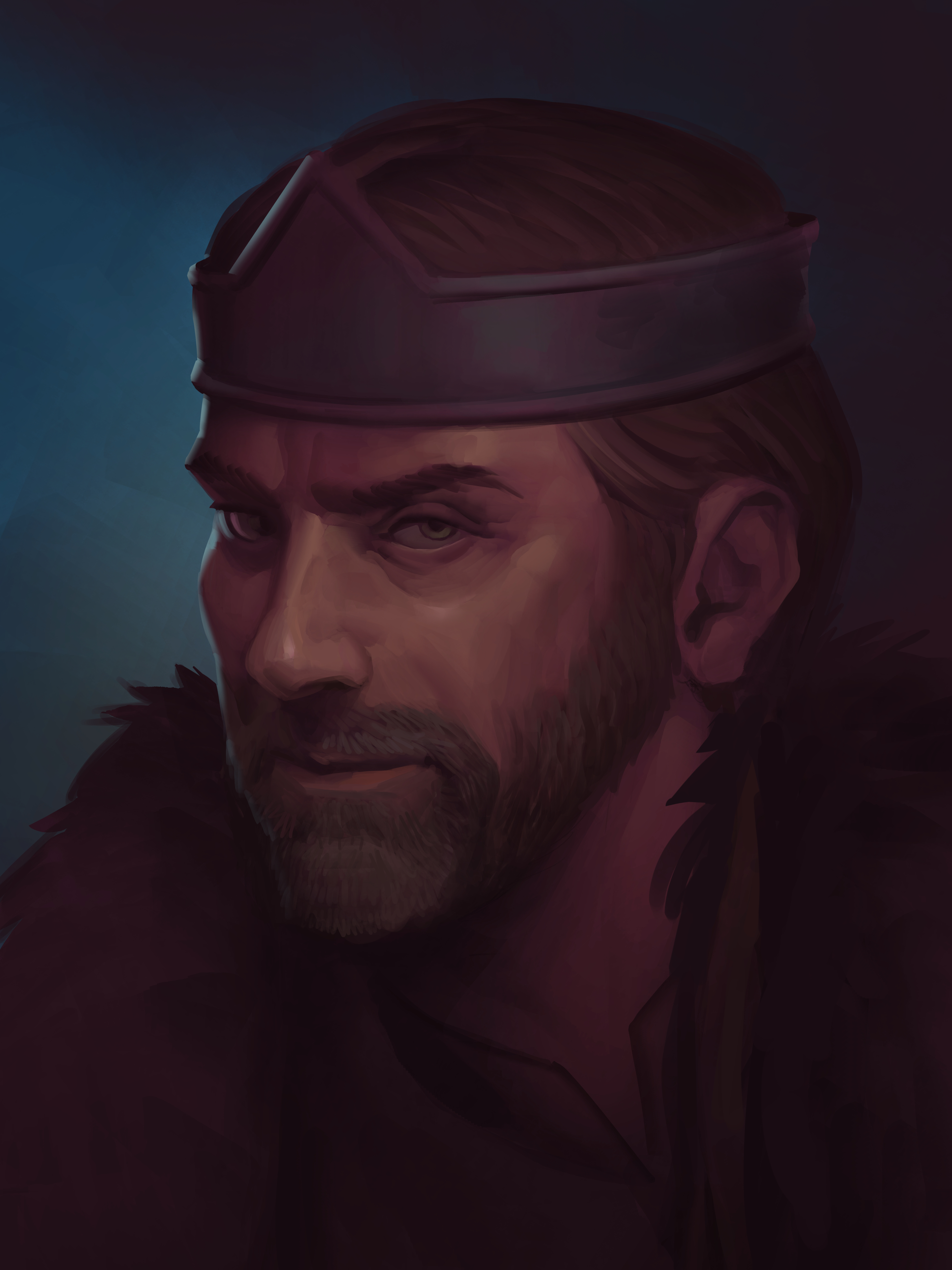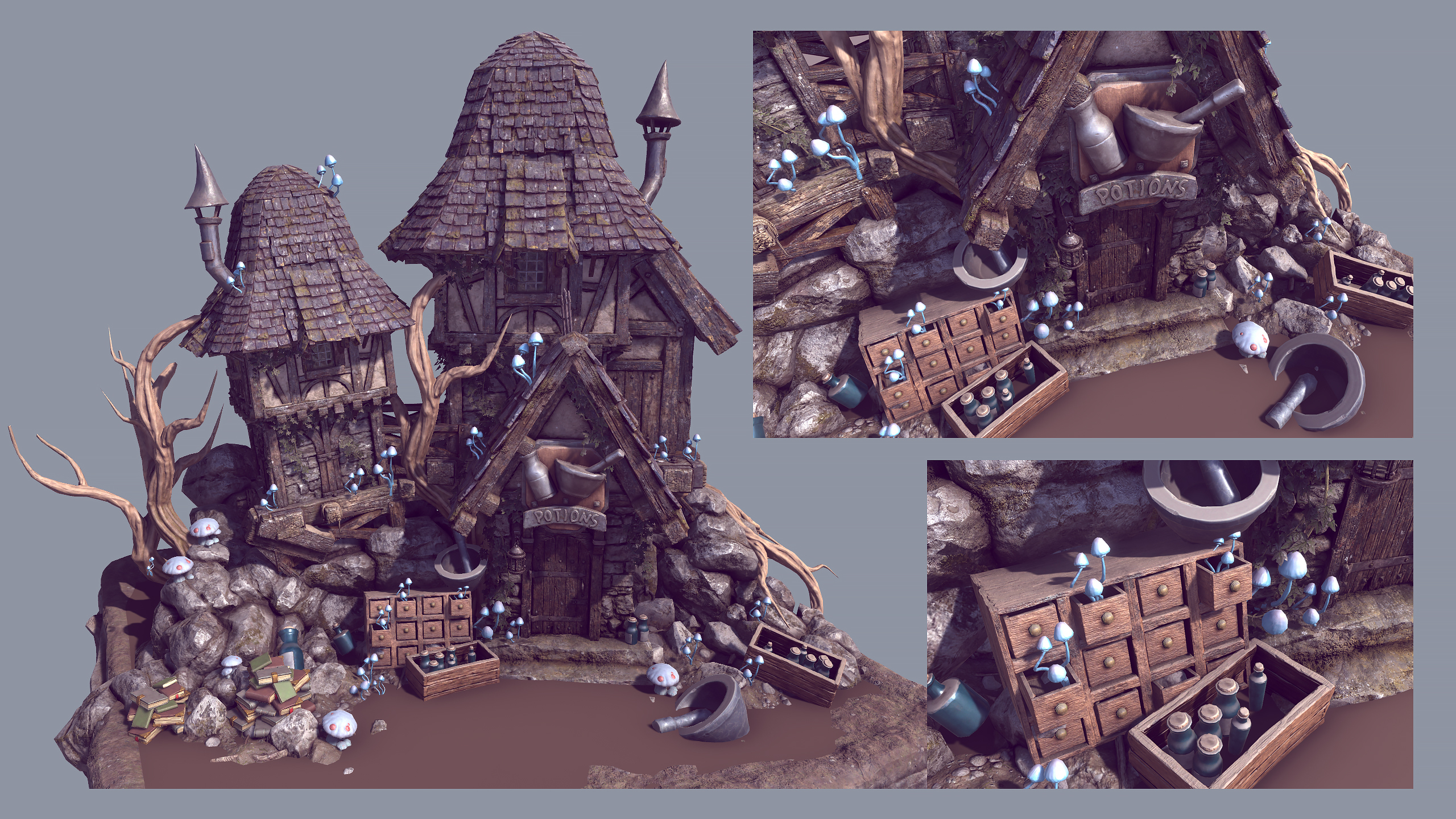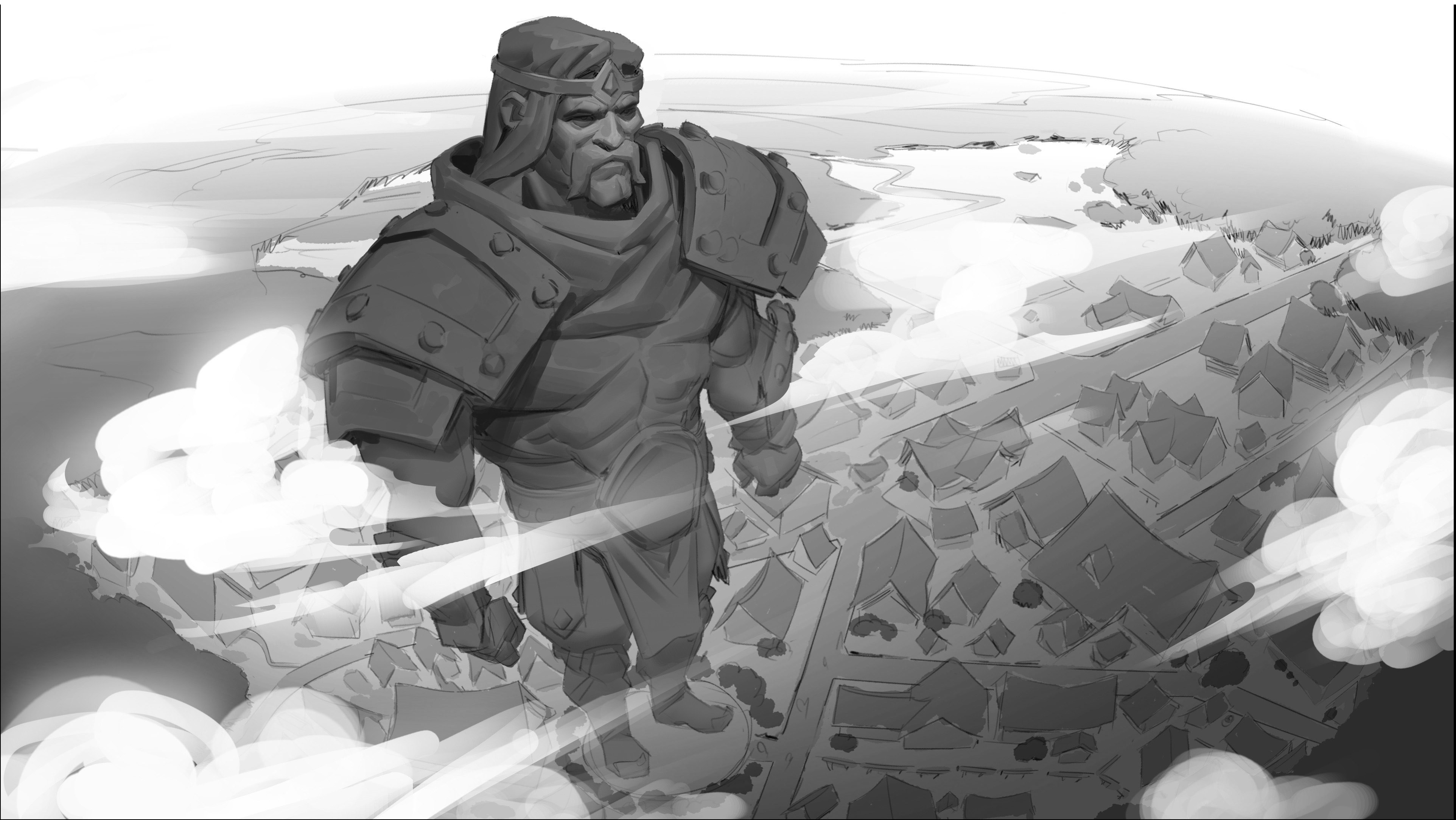Richard Garriott recalls his early career and 'favourite love-hate fan' Donald Blinky
"Why you let some freak halfwit write this piece of crap will forever be beyond me."

I recently had the opportunity to speak with Richard Garriott about his new MMO project, Effigy. Garriott comes into this project with an incredible RPG legacy, and one that is perhaps a little under-appreciated in the contemporary scene. Akalabeth, his first game, wasn't intended for commercial release, but he was persuaded to sell it by an enthusiastic store owner, and it became arguably the first videogame RPG. Ultima, its successor, was equally foundational for early RPGs, and in the 1990s, Ultima Online was one of the MMOs that set a direction of travel for the entire genre.
Ultima 4: Quest of the Avatar was my very first RPG, as a Master System port, and an experience I remember vividly because I was four or five and couldn't read all that well. The character would always get poisoned somewhere near the start of the game and eventually die, and I couldn't work out how to cure him. I did later learn what the word 'antidote' means.
Garriott's legacy, and his laundry list of personal accomplishments, made me wonder about what attracted him back for Effigy: and how odd it must be to have began his career as a solo dev selling games in plastic baggies, and now be in a world so filled with tools. We also touched on some mild controversies around the naughty things you could do in Ultima, and his favourite regular correspondent from the early days.
The other half of the interview, in which the game is discussed in more detail, can be read here.

PC Gamer: You've done a lot of remarkable stuff in your life. Why come back to games?
Richard Garriott: Let me talk about the past a little bit, go back to the beginning: You know, teletypes and paper tapes is what I wrote my first games on. My first published game was the Ultima precursor Akalabeth, then nine solo player Ultimas, Ultima Online, Tabula Rasa, Shroud of the Avatar, and so that spans 40-plus years of time. But that also goes back to a time when games were pretty easy to accomplish on your own, and now they take pretty sizable teams and pretty sizable amounts of money to pull off.
What I find interesting about that entire 40 years, though, is that we're sort of emerging at a change and a problem that I will describe that otherwise has persisted through the entirety of my career. Which is that Moore's law, making machines faster and faster, is obviously a good thing in the sense of the totality of what the machines can do. It's interestingly provided a challenge also to add depth into the games, and here's what I mean by that. I'm gonna use Doom and Quake as an interesting marker, where if you think of Castle Wolfenstein, it was software-rendered. And then when the first Doom came out, it was suddenly when the first 3D hardware came out, then Quake really came out with another generation of 3D hardware. And if you think about all these moments in development time, there's also when hard drives came out, there's also when the internet arrived, and every time there's one of these major advancements, I look at gameplay and it usually simplifies back down to a relatively simple first-person shooter. And it's only in times of stability that games got to where I really enjoyed both writing them and playing them: They got deeper.
Keep up to date with the most important stories and the best deals, as picked by the PC Gamer team.
And until the next big breakthrough, you know, from massiveness standpoint of computers, in which case it became simplified again, we're now at the point where the machine speeds and render pipelines are so powerful and the tools to make games are now so powerful, that we're no longer getting trapped in this cycle of 'games have to become simpler' anymore. There's tonnes of games that are visually retro that sell as-is, sell as well as any that are realistic in their graphics, so it makes almost no difference to a player's perception anymore, being in the treadmill race for who's got the best visual effects. And so that allows us to now really dig-in deeper and make games that have meat in them, that I now find interesting to participate in the making of again.

What does depth mean in that context? New narrative structures, new systems?
Well to me depth means the opposite of simplicity. Let me go back to the first person shooter metaphor and analyse that. [Shooters drive hardware advancements], but it's only after that you begin to go, "Okay, now I want to have characters that have conversations." After that, I want to have my NPCs have roles and responsibilities. After that, I want to have the reason for my existence within the virtual world have meaning to me as a character, as a human, not just because it's fun action, but because it's in my mind good art, great art.
This transcends games. If you're talking about music, or paintings, or anything else, a great piece of art is something that holds up a mirror to you or to the human condition and speaks, says something about life—that you feel, after you've participated in and engaged with a great piece of art, that I have had a meaningful, worthy experience as a participant with that art.
And I think we're now at the point in games where that can be tackled in ways that it was much harder to do through most of my 40 year career. Todd [Porter] and I actually have worked together, we've known each other for most of our careers, and so when Todd called me up and said, "Hey, I'm thinking about this particular game with this particular strategy. How would you like to be a part of it?" I was like: "Absolutely, yes".
And when you say about being "done with games", one of the things I'm talking about is, for example, I'm talking to you from the headquarters of the Explorers Club. I'm actually president of the Explorers Club that was founded in 1904, by the great explorers who reached the North Pole, South Pole, top of Everest, bottom of the ocean space, all of which I have done except the top of Everest. And I've done those things, throughout my whole career, even you know, back in early Ultimas, I was direct canoeing down the Amazon and hitting the North Pole, South Pole or down a deep submersible target. I even wrote a book called Explore and Create, which is my treatise about how I think that only if you're going to do something that is important creatively, you have to draw your inspiration from as wide a field outside of your direct competitors as possible. And so I actually pull my inspiration from my exploring, so I think of these as not different lives. I think they're all part of, you know, what makes, you know, a Lord British creative input on a project.

Those early days in games, stuff in the Ultima titles caused some minor controversies. Were you ever aware of this stuff? How did you feel about it?
Ultima 3 was the first game that my brother and I did as Origin [Systems], and that was the first time I got fan mail. I got fan mail from my favourite love-hate fan, a guy named Donald Blinky, who played every Ultima. And every Ultima, as soon as he started playing it, he would write hate mail, the top line of the letter said, "This game stinks: Why you let some freak halfwit write this piece of crap will forever be beyond me. Why didn't you get the guy that wrote Ultima 2 to write this one?" Which of course I did.
And then what happened is after Donald complained about it, he would finish one, and then send me more mail after finishing saying, "I loved it, it was a great game, here's my check for the next one!" And then we'd start the hate cycle over. But the point was, that was the first time I got to see what people were thinking when they're playing it. My games were still pretty small back then. So I would talk about these things with my mother or my brother. They were worried that some of the scenes that might cause outrage or would literally get like Good Housekeeping magazine to come out against us in some way!
But the games in my mind were still too small to be, you know, to be worth that level of consternation one way or the other. It just felt to me to be the right thing to do. Because I was kind of blissfully ignorant. That was when I made it to where you could go behind the shops and steal food or stuff, and sometimes it worked but sometimes the guards were called. I just thought that was cute, right? I literally was, you know, 19-20 years old. I just thought it was cute. I had no idea until I got fan mail that everybody did it.

Rich is a games journalist with 15 years' experience, beginning his career on Edge magazine before working for a wide range of outlets, including Ars Technica, Eurogamer, GamesRadar+, Gamespot, the Guardian, IGN, the New Statesman, Polygon, and Vice. He was the editor of Kotaku UK, the UK arm of Kotaku, for three years before joining PC Gamer. He is the author of a Brief History of Video Games, a full history of the medium, which the Midwest Book Review described as "[a] must-read for serious minded game historians and curious video game connoisseurs alike."

